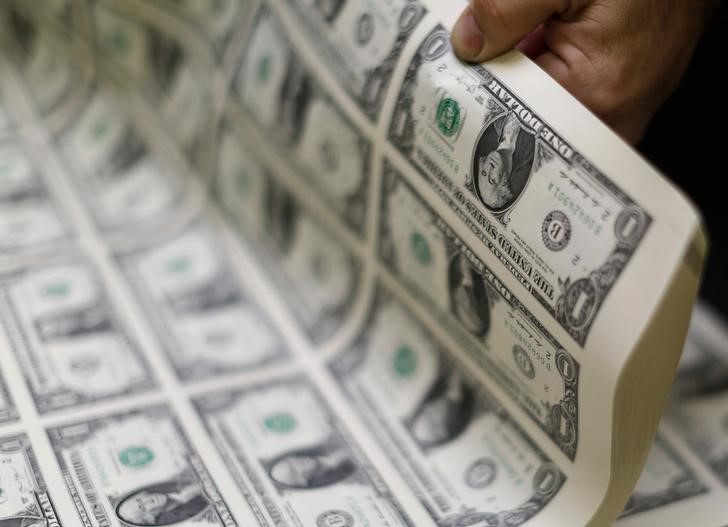By Wayne Cole
SYDNEY, Feb 3 (Reuters) - The Australian dollar was precariously poised near a decade trough on Monday, as short-term bond yields hit all-time lows on wagers interest rates would have to be cut at least once to offset the economic fallout from the coronavirus.
The Aussie was hanging on at $0.6689 AUD=D3 having dived as deep as $0.6683. It slid 2% last week to threaten its October trough at $0.6670, and a break there would take it to territory last trod in early 2009.
The New Zealand dollar also struggled at $0.6459 NZD=D3 , having shed 2.1% last week to a two-month trough. It now has support in the $0.6400/20 zone.
Both currencies have suffered from fears the viral outbreak would curb Chinese tourism and the demand for key commodity exports, including iron ore and coal.
As the crisis spread investors have significantly ramped up wagers that central banks globally would have to ease policy to safeguard economic growth.
China's central bank on Monday duly cut a key repo rate and flooded the financial system with cash. moved aggressively to price in more easing from the Reserve Bank of Australia (RBA), which holds its first policy meeting of the year on Tuesday. AU/INT
Currently, the market 0#YIB: implies only a 20% chance of a quarter-point cut in the 0.75% cash rate this week, but that probability jumps to 100% by May.
Investors have also pushed to price in a 66% chance of a further easing to 0.25% by the end of the year.
"The pricing for rate cuts has been building since the impacts of the bushfires and coronavirus have escalated," said Richard Grace, chief currency strategist at CBA.
"While we are not calling for an RBA cut until April, the risk of a cut this week cannot be ruled out. The RBA is likely to refer to the virus in their accompanying monetary policy statement."
Cash yields on three-year Australian notes AU3YT=RR dived to a record low at 0.553%, breaching the previous trough of 0.567% hit in October.
Three-year bond futures YTTc1 climbed 5 ticks to 99.435, near its all-time high, while the 10-year contract YTCc1 rose 4 ticks to 99.0750, implying a yield of 0.925%.
Domestic data was overshadowed but did show low rates were working to spur house prices and new home building. L4N2A30UI
Home prices across the nation rose 0.9% in January, while annual growth accelerated to the fastest pace since late 2017, data from property consultant CoreLogic showed on Monday.
Approvals to build new homes were also surprisingly firm in December, pointing to a much-needed recovery in construction later in the year. (Editing by Jacqueline Wong)
